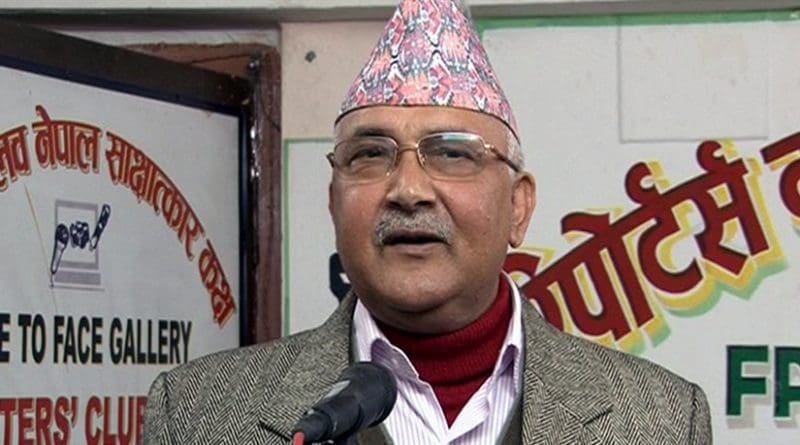Nepal: Madhesi Agitation Continues, Talks Fail – Analysis
By SAAG
By Dr. S.Chandrasekharan*
The Madhesi Agitation started on August 17, 2015 and so far 57 lives have been lost and hundreds were injured. Some of those injured were the main bread winners of their families.
While the main panties continued to be rigid, particularly the UML, the Madhesi groups were willing to be flexible and it was thought that the talks that have been going on between the representatives of the three main parties and the Madhesi group (task forces) would come to some understanding. This was not to be. The final round of talks on 18th of this month failed totally.
Back to Square One!
When the talks on 18th ended in a stalemate, Laxman Lal Karna of the Madhesi group said -“We could not make any progress as the members of the task force representing the three big parties did not come up with any solution. On each issue they say that they have to consult the top leaders.”
The three leaders of the task force representing the three parties- Mahesh Acharya of the Nepali Congress, Bhim Bahadur Rawal of the UML and K.B. Mahara of the CPN (M) were all heavy weights in their parties and could have taken some bold decisions without referring to the leaders back and forth on every trivial issue.
To the credit of the three representatives, it is said that they did agree to accommodate the views of the Madhesi groups but were shot down by the top leaders. Even among the top leaders while the Nepali Congress and the Maoists were willing to be flexible, the UML was said to be dead against any accommodation with the Madhesi groups on the question of redrawing the provincial boundaries.
The Madhesi leaders have a problem. They feel that without a legal and perhaps a constitutional guarantee, they will be betrayed agin on the question of redrawing the boundaries. In their view, the political mechanism should be legitimised legally and introduced as a schedule in the constitution. This, the top leaders of the three main parties are unwilling to do.
The Madhesi leaders are justified in seeking firm constitutional guarantees on the decisions of the High level committees. It may be recalled that Prime Minister Oli in one of his public meetings declared that the three disputed districts in the east- Jhapa, Morang and Sunsari will remain in tact. Incidentally, The hill people are in a majority in Jhapa, while in Sunsari the reverse is the case. In Morang both the communities are almost equally represented.
Gachaadar, one of the many Deputy prime ministers as recently as 11th January, in a public meeting pledged that he would do everything possible to keep the districts of Jhapa, Morang and Sunsari in tact.
The Madhesi leaders are therefore justified in seeking iron clad guarantees on the decisions of the High level Mechanism (committee) which they fear will not be honoured otherwise. As one of the leaders told me- “If the Madhesi groups do not get what they want now, they will never get it in future. In the past the government had backtracked on every agreement they had with Madhesi groups and they will continue to do so unless some firm legal guarantees are given”
Six Point Demand:
It is said that what upset the three major parties was that at the last minute, the Madhesi Groups presented an unofficial paper consisting of six points which in one sense was a summary of the 11 point demand made earlier. There were two important issues in that paper. Those were
- In the agreement, mention should be made of two provinces in the Terai or at least an unequivocal pledge that the Tharu and Madhesi clusters should be kept in tact while drawing up the boundaries.
- Representation in the National Assembly’s (upper house) should be on the basis of population and five seats for each province women and marginally excluded communities.
This places a constraint on the High level Mechanism and may not be acceptable.
The representatives of the three parties were understandably furious on the last minute additions.
The Tharus are watching though for now, are not seriously participating in the talks. But it is a question of time before the issue gets critical and they may start a similar agitation in the future. According to them, if Karnali could be given a separate province, there is no reason why the Tharus who form the majority in the western plains should not be given a province of their own.
Agitation Resumed:
Protests have been resumed in the Terai districts particularly in Sarlahi, Saptari, Bara and Bardiya. Protests have picked in a big way in Birgunj and tyres were burnt in the road causing obstruction. Free flow of goods to Kathmandu through Raxaul may again be affected.
There is a trust deficit on both sides and this needs to be attended to immediately.

